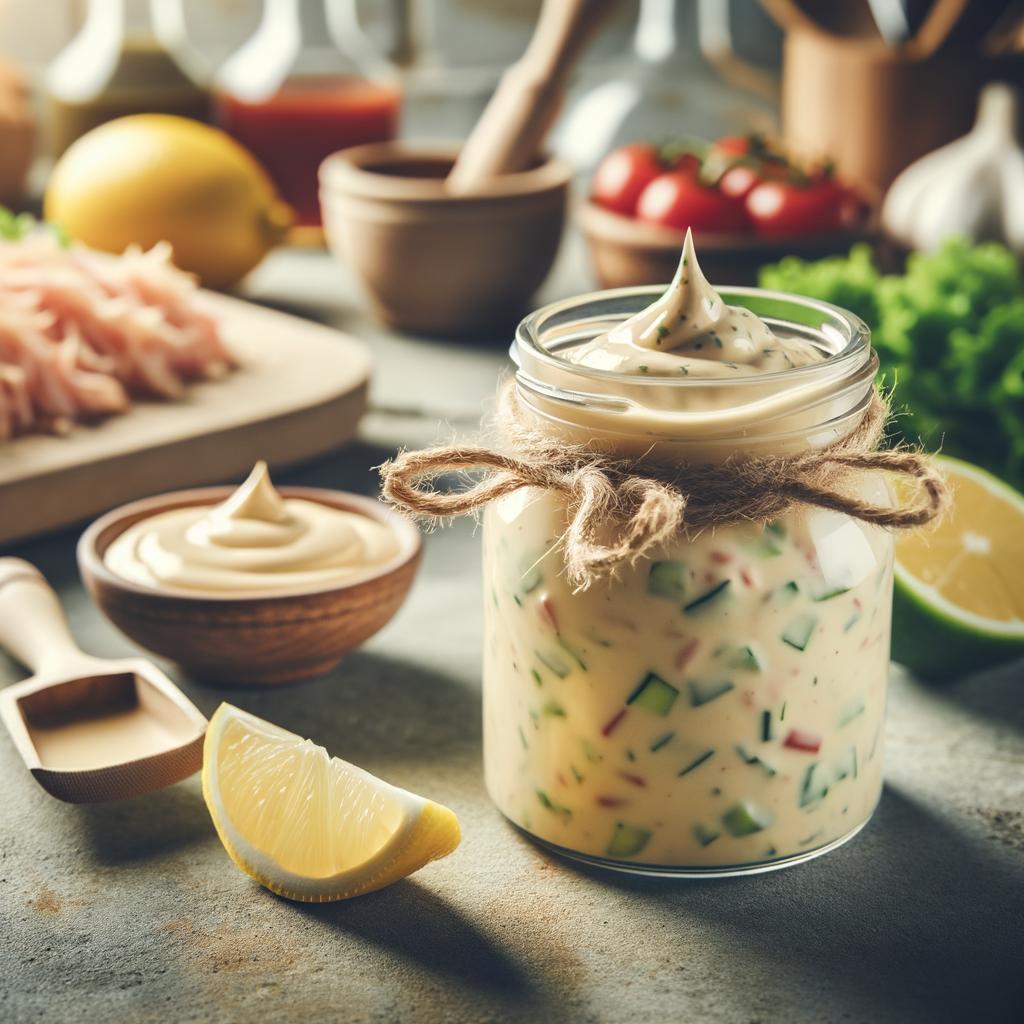for Remoulade Sauce

Description
Remoulade sauce, a delightful culinary gem, is a tangy and creamy concoction that is often compared to tartar sauce, but with a personality all its own. It boasts a pale yellow hue, a result of its mustard foundation, and a texture that is luxuriously smooth yet punctuated with bits of pickles, capers, and herbs. The flavor profile is a complex medley of sweet, tangy, and slightly spicy notes. What sets remoulade apart from other sauces is its versatility. It can be tweaked with a variety of ingredients like horseradish, paprika, or anchovies, each version carrying a unique character and charm.
Primary Uses
Remoulade sauce is a quintessential component in many European and American cuisines. In Denmark, it's used as a condiment for fish and roast beef sandwiches, while in France, it's typically served with seafood, particularly with the classic dish, "Celery Remoulade". In the Southern United States, particularly in Louisiana, the sauce is spicier and is a must-have with seafood, fried green tomatoes, and crab cakes. Beyond the culinary world, remoulade carries a cultural significance, symbolizing the fusion of European and American culinary traditions.
History
This enchanting sauce traces its roots back to France in the 17th century. The name "remoulade" is derived from the French word "remoudre", meaning "to grind" - a nod to the mustard seeds that are ground to make this sauce. Over time, as it voyaged across the Atlantic, it adopted local flavors, evolving into spicier versions in places like Louisiana. There's an old Cajun myth that a taste of remoulade sauce can spark a lifelong love for Southern cooking, a testament to its captivating charm.
Nutritional Information
Remoulade sauce, while rich in flavor, is also packed with nutritional benefits. It's a good source of Vitamin E, thanks to the oil, and Vitamin K, from the pickles and capers. It also offers a dose of Vitamin A from the mustard. However, it's worth noting that remoulade is calorie-dense due to its oil and mayonnaise base, and should be enjoyed in moderation. Compared to similar sauces like tartar, remoulade has a slightly higher calorie count but compensates with a more complex flavor profile and nutrient content.

